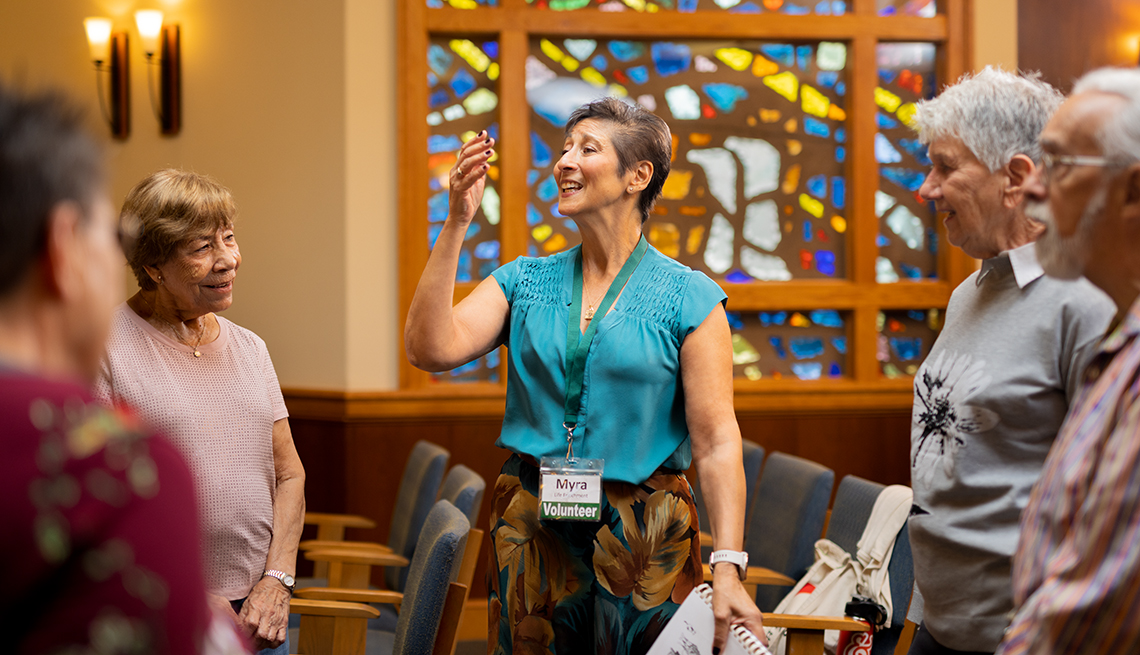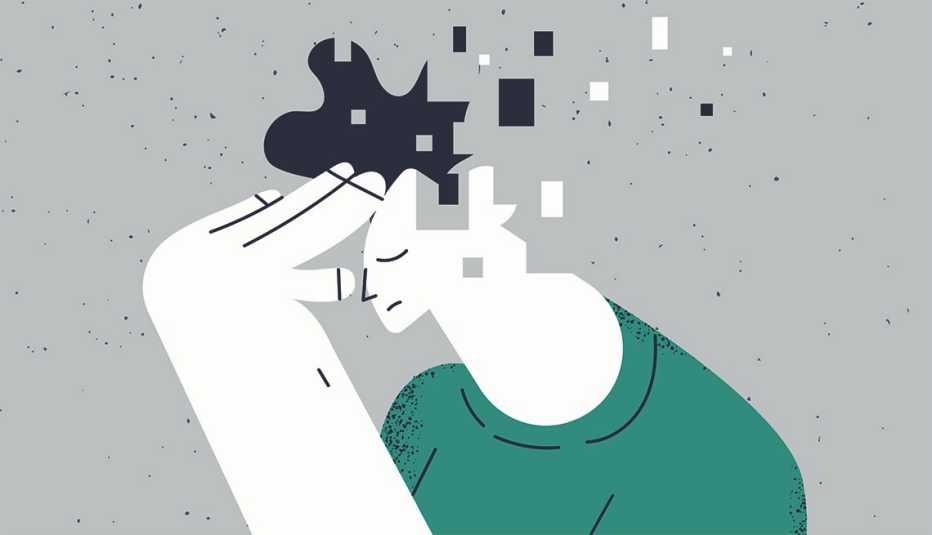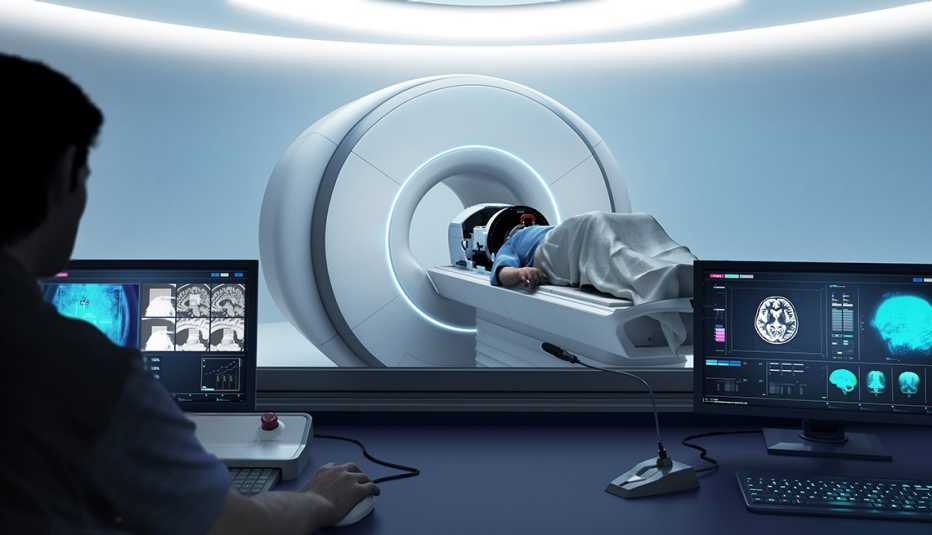AARP Hearing Center
The signs appeared gradually about 10 years ago.
Myra Solano Garcia, who was in her early 50s, would forget how to spell a word or to do a task she and her husband had discussed the day before. Known all her life for her eloquence — in five languages — she suddenly struggled to think of the right words.
The memory lapses grew more frequent and spread to other things that had always come easily to her, such as sewing or remembering the name of someone she had met. She started repeating herself, recounting the same story or asking the same question.
10 Early Signs and Symptoms of Alzheimer’s
Although Alzheimer’s can affect individuals differently, there are a number of common symptoms.
- Memory loss that disrupts daily life
- Challenges in planning or solving problems
- Difficulty completing familiar tasks
- Confusion with time or place
- Trouble understanding visual images and spatial relationships
- New problems with words in speaking or writing
- Misplacing things and losing the ability to retrace steps
- Decreased or poor judgment
- Withdrawal from work or social activities
- Changes in mood or personality
Source: Alzheimer's Association
When Garcia voiced her concerns to her general practitioner, she was given pen-and-paper memory tests on which, she says, she did fine.
But she knew she wasn’t fine. It would take seven years of misdiagnoses and dismissals before Garcia’s gut feeling was validated.
“There were other doctors in between who checked me and said, ‘You’re fine,’ ” Garcia recalls. “I knew something was wrong. They were having either a terrible time believing I had Alzheimer’s or they were not following the science and not finding the right diagnosis.”
In the meantime, she says, she continued to struggle, unsure of her ability to handle her personal and professional responsibilities.
“I felt like I was losing my skills. I was forgetting how to do things,” she says.
As she increasingly lost autonomy, she felt frustrated, diminished.
A long journey to a diagnosis
Doctors at first diagnosed Garcia, who is 64 and lives in Upland, California, with attention deficit disorder (ADD) about seven years ago, placing her on medication for the condition. The diagnosis puzzled Garcia, who says she’d always been highly organized and focused. But it was better than what she had feared: Alzheimer’s, which had upended the lives of two maternal aunts.
“When I got that ADD diagnosis, I had tears of joy,” Garcia says. “It wasn’t a death sentence. We all know how Alzheimer’s ends.”
But the ADD medication made no difference, and Garcia’s symptoms worsened. The changes she was experiencing didn’t make sense.
Garcia, a New Jersey-born daughter of Cuban immigrants, had distinguished herself from an early age for her musical talent and sharp mind. She won spelling bees in elementary school and was the star of Union City’s Emerson High School choir, where her velvety soprano voice delighted audiences.
She earned a bachelor’s degree in music and a master’s in education before pursuing a career in classical music, performing in operas and theater productions around the world until, pregnant with her second child, she decided she could no longer spend long stretches of time away performing.
She excelled again in her next career, in higher education. In leadership roles at universities and other academic institutions, Garcia spearheaded efforts that helped raise some $500 million. But Garcia found herself increasingly struggling to do her job.
“I couldn’t keep track of things,” she recalls. “I would be given directions, and then not be able to do something, or I’d do it backward, or in a different way.”
Despite support from the University of La Verne, a private school in La Verne, California, where she last held a full-time position, Garcia was eventually asked to step down from her vice president job, though she remained employed in a lower-ranking role. “That was very painful; it was a very difficult time,” she says.
Then came the COVID-19 pandemic, and Garcia was furloughed from her job. Her symptoms worsened. She tried working remotely for a few organizations but found it impossible to navigate the technology necessary to perform her duties.
“There were multiple electronic systems,” Garcia says. “There was Zoom over here, Apple over there. It was so much, I couldn’t do it. I couldn’t manage the technology.”
Garcia kept pushing for more medical tests. Her primary doctor sent her to a neuropsychiatrist, who administered a lengthy battery of tests to check for Alzheimer’s.
“I failed resoundingly,” she says.
Did you know?
“Doctors don’t understand why most cases of early-onset Alzheimer’s appear at such a young age. But in a few hundred families worldwide, scientists have pinpointed several rare genes that directly cause Alzheimer’s. People who inherit these rare genes tend to develop symptoms in their 30s, 40s and 50s. When Alzheimer’s disease is caused by deterministic genes, it is called ‘familial Alzheimer’s disease,’ and many family members in multiple generations are affected.”
Source: Alzheimer’s Association
At 62, she was diagnosed with early-onset Alzheimer’s, putting her in a minority: Only about 4 percent of the 6.5 million people in the United States with the disease develop it before the age of 65, according to the Alzheimer’s Association. Some 300,000 to 360,000 people in the U.S. have early-onset Alzheimer’s, the Mayo Clinic estimates. Like Garcia, many develop noticeable symptoms when they are between 30 and 60 years old, and often are misdiagnosed because of their younger age.
“It took me two years to get this new [general practitioner] to say, ‘There’s a neuropsychiatrist you need to go see,’ ” Garcia says. Perhaps because she is still verbal and presents well, she says, “he just didn’t believe it. It was so frustrating.”
A turning point
Experts are unsure what exactly causes early-onset Alzheimer’s. A family history of the disease is the only known risk factor, according to Johns Hopkins University.












































































